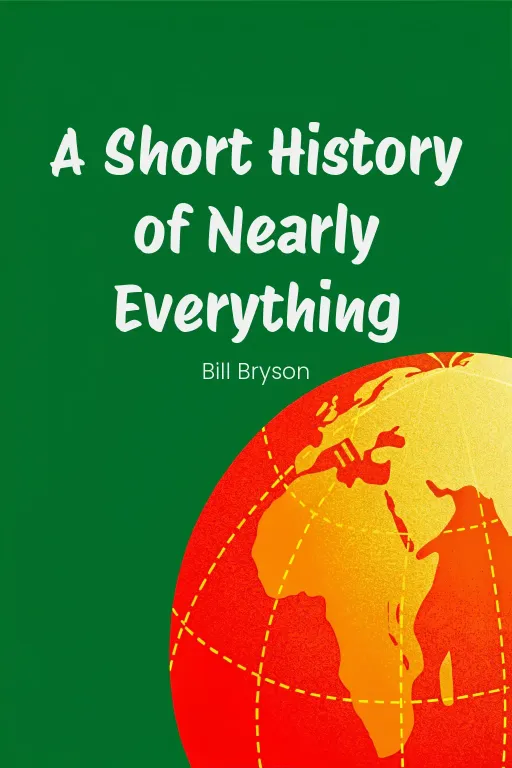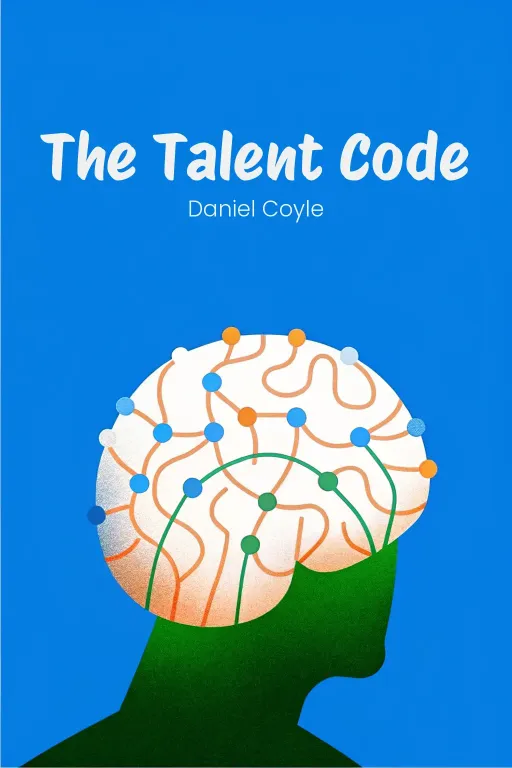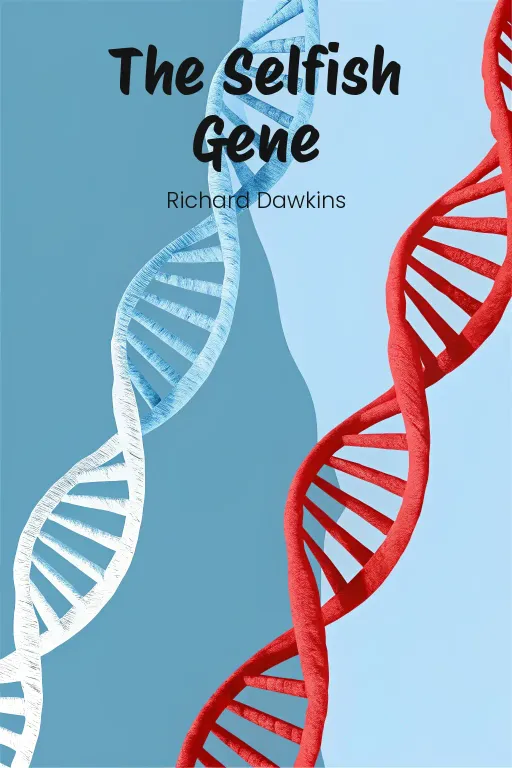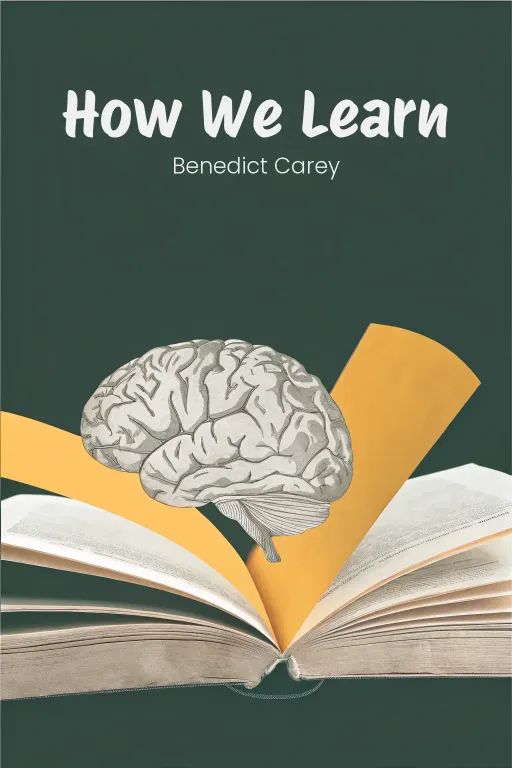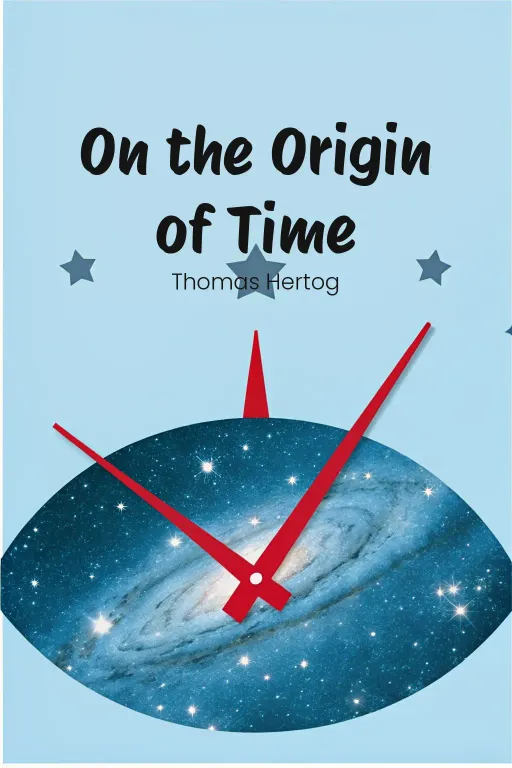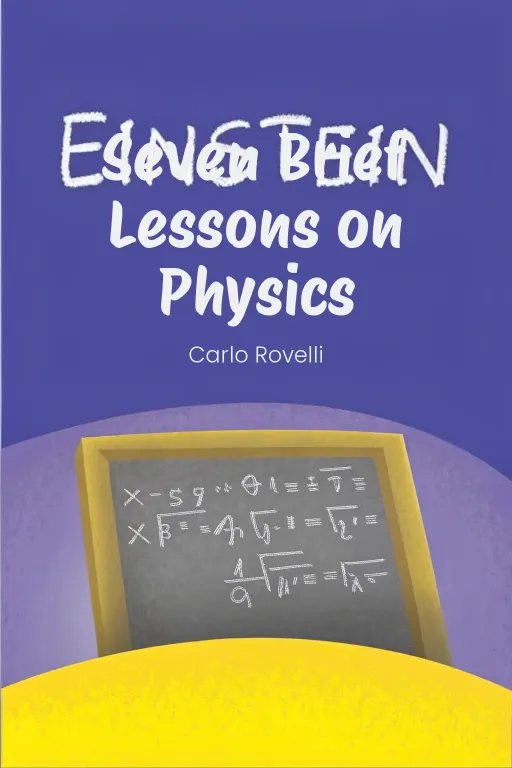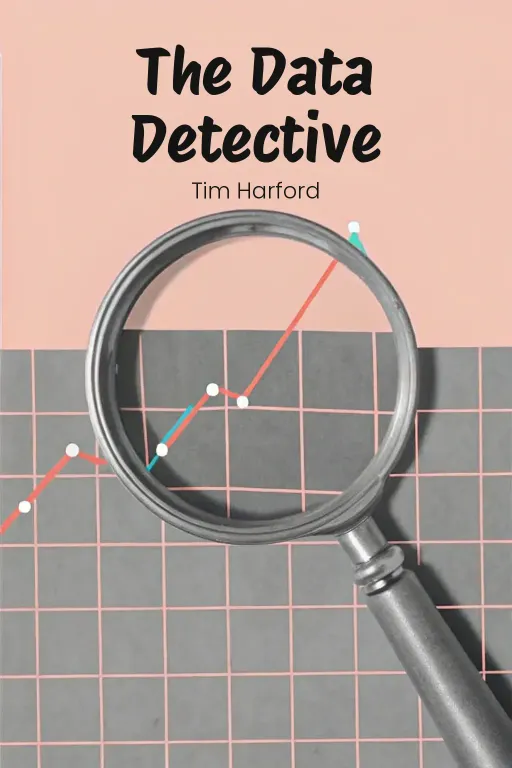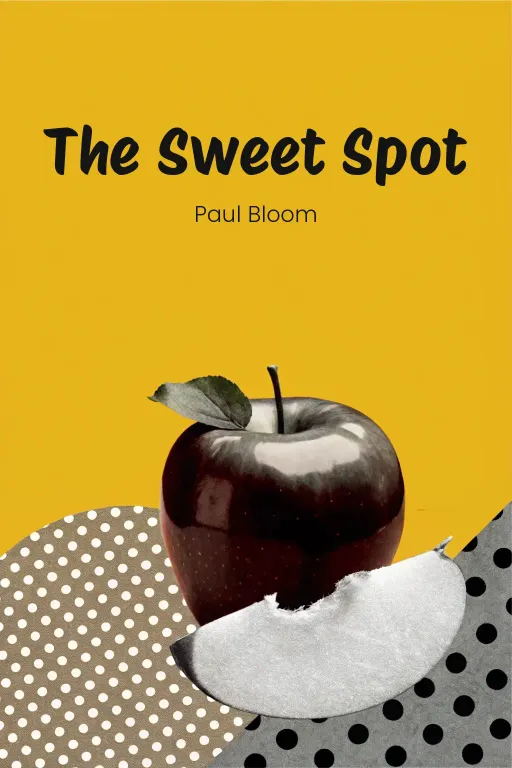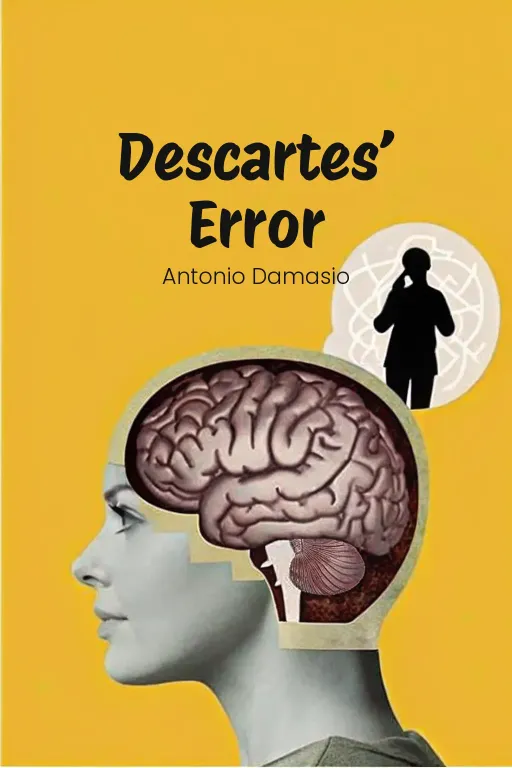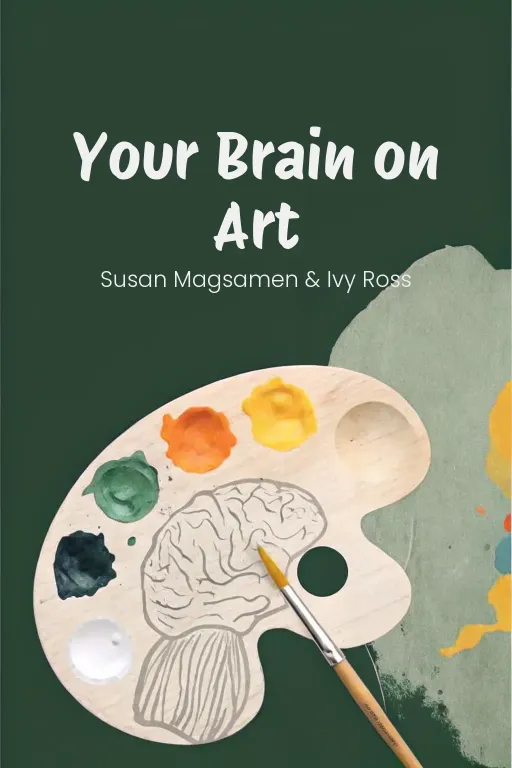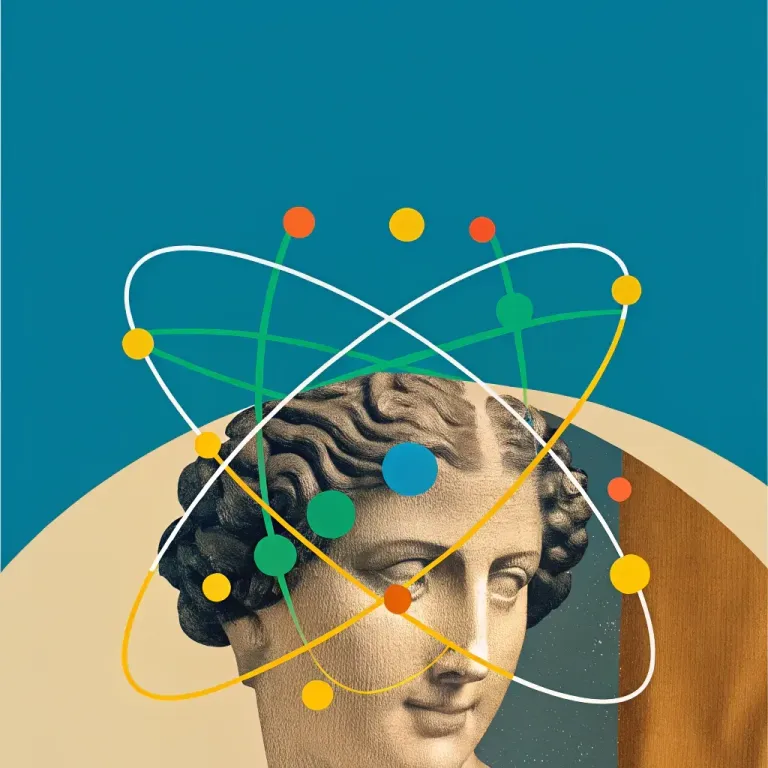
Cosmic Echoes: Are You Listening Closely?
Podcast by Wired In with Josh and Drew
A mind-bending introduction to modern physics
Introduction
Part 1
Josh: Hey everyone, welcome back to the show! Today, we're diving into Carlo Rovelli's “Seven Brief Lessons on Physics”. It's really one of the most poetic explorations of the universe I've come across. Drew: “Seven Brief Lessons”… Right. A book that claims to distill the secrets of the universe into just seven lessons. Ambitious, wouldn't you say? Josh: Well, Rovelli makes it seem almost easy. He walks us through Einstein's theory of relativity, the bizarre world of quantum mechanics, even the structure of spacetime itself. And somehow, he makes it all... beautiful. I know that sounds crazy, right? Drew: Beautiful, okay, but let's keep in mind that physics challenges, well, just about everything we “think” we know. I mean, ideas like time being an illusion or reality being a game of probabilities at the smallest level... That's enough to make you rethink your morning coffee, right? Josh: Exactly! That's the kind of mind-blowing stuff we're going to explore today. We're going to break down three key areas: the revolutionary ideas that reshaped physics, how these ideas redefine our understanding of reality and time, and finally, what they reveal about our connection to the universe. Drew: Alright, so we're talking about curved spacetime, quantum weirdness, and finding out we're all cosmic neighbors made of stardust? Josh: Something along those lines. By the end, hopefully you’ll be thinking about your place in the cosmic symphony. Drew: Or maybe just questioning my own existence. Either way, let's jump in.
The Foundations of Modern Physics
Part 2
Josh: So, when Rovelli starts breaking down modern physics, he kicks things off with the “real” game-changers: Einstein’s General Relativity and Quantum Mechanics. They're like the two main pillars holding up everything we know about physics today. It's not just tweaking the rules, it's a total rewrite. Drew: Exactly, and that's what’s so wild, right? We were all comfortable with Newton's apple-falling-from-a-tree version of gravity for centuries. Then Einstein rolls in, dropping a bomb that gravity isn't a force at all. Instead, he says it's spacetime doing some kind of cosmic yoga, bending and twisting all over the place. Josh: Absolutely! General Relativity wasn't just a small step; it was a giant leap. Einstein said that mass and energy actually warp spacetime, and that's what we experience as gravity. Imagine spacetime as a stretched-out elastic sheet. You put a bowling ball on it—that's a big, heavy object—and it makes the sheet curve. Smaller things, like marbles rolling nearby, will follow that curve. That's what, at our scale, we see as gravity. Drew: Right, a subtle reminder that the physics world “really” loves metaphors about trampolines. But seriously, when I try to imagine this "curve in the cosmos," it feels more like abstract art than actual science. I mean, how did Einstein ever get anyone to believe this wasn’t just some crazy thought experiment? Josh: It's funny you ask that, because it wasn't all smooth sailing, initially. He faced skepticism until 1919, when Arthur Eddington provided some actual evidence during a solar eclipse. Eddington's team measured the way starlight bent as it passed the Sun. This bending couldn't be explained by Newton’s gravity, but it was exactly what Einstein's theory predicted. That's when Relativity went from theoretical to observable. Drew: So, let me make sure I understand, a solar eclipse, starlight doing a bendy dance, and one astronomer with a ruler basically gave Einstein a scientific mic drop moment? Josh: Pretty much! And that wasn’t all. Einstein’s equations also predicted black holes—regions where gravity is so strong that nothing, not even light, can escape. Drew: Black holes, stellar death traps. I'm guessing that's when science fiction writers collectively lost their minds. Josh: Well, in the very beginning, even scientists doubted that black holes could “really” exist. They seemed more like strange mathematical quirks. But a century later, our technology caught up. We've now detected gravitational waves, which are like ripples in spacetime. You could also call them echoes from black hole collisions. Drew: Hold on, so the universe, having a bad day, actually has spacetime tremors? How did we even figure that out, with cosmic microphones? Josh: Kind of! Instruments like LIGO were created to detect those tiny vibrations. The first detection in 2015 was huge. Einstein predicted these waves a century earlier, and their discovery felt like magic, bringing theory and observation together. Drew: Okay, fine, General Relativity is pretty impressive. Einstein redefined the cosmos and gave us black holes, gravitational waves, and wobbly spacetime. But then you bring in quantum mechanics, and suddenly things get “really” weird. Josh: Weird is definitely the right word. While Relativity explains the universe on a grand scale, quantum mechanics dives into the chaotic and probabilistic world of the microscopic. Imagine a place where nothing is certain, where particles don't just move, they exist in a cloud of possibilities. Drew: Ah, so we've gone from bowling balls on trampolines to Schrödinger’s cat in a box, both alive and dead at the same time? Josh: That’s the perfect analogy for quantum mechanics. It began with Planck's discovery in 1900 that energy comes in packets, called quanta instead of being continuous. And then Einstein expanded on Planck’s work by describing light as particles, photons, that interact with matter in surprising ways. That explained things like the photoelectric effect. Drew: Let me see if I’ve got this. Classical physics thought energy was like a flowing river. But, now it's more like a cosmic vending machine, giving you exactly what you pay for in separate packets? Josh: Exactly! And it wasn't just energy. Quantum mechanics changed how we see particles and atoms. Bohr’s model stated that electrons leap between specific energy levels instead of moving smoothly. Hence the term "quantum leap.” Drew: Quantum leap? Isn’t that when particles act like stressed commuters missing every other train? Josh: Right, and it gets even stranger. Heisenberg’s Uncertainty Principle says that you can’t know a particle's exact position and momentum at the same time. It’s not a technological limitation; it’s how nature works. Drew: So, what you're saying is, the universe plays hide-and-seek with us, on purpose? Josh: In a way, yes. This uncertainty sparked a huge debate in science. Einstein, who liked order and logic, rejected quantum probabilism, saying, “God does not play dice.” Bohr, however, believed randomness was fundamental to the quantum world. Drew: Classic Einstein. Still, I can’t help but wonder how these ideas seeped into everyday life. Did quantum mechanics help build our smartphones? Josh: Absolutely. Quantum principles are the foundation of semiconductors in your phone, lasers, and even the up-and-coming field of quantum computing, where qubits use superposition to solve problems completely beyond regular computers. Drew: Computers that can think in probabilities. That sounds both genius and deeply unsettling, somehow. Josh: That’s what’s so great about these theories. They are profoundly practical. Together, Relativity and Quantum Mechanics offer very different views of the universe, and reconciling them remains one of the biggest mysteries in physics. Drew: So on one side, we've got Einstein’s elegant cosmos; on the other, this quantum world bordering on chaos. And they're just waiting for us to figure it all out. Josh: Precisely. These ideas challenge our understanding of everything. And yet, they leave us wanting more.
The Nature of Reality and Time
Part 3
Josh: So, from these core theories, we move into how they affect our reality. What I find particularly striking, Drew, is that Relativity and Quantum Mechanics don't just reveal how the universe works, but they really challenge our fundamental perceptions of reality and time. Drew: Exactly! Because when you start throwing around ideas, you know, like “time isn’t real” or “an observer changes reality,” you’re basically telling human intuition, “sorry, you’re outdated.” Which feels a bit harsh, honestly. Josh: I totally get that! But it’s exciting too. This area brings together abstract theory and philosophical questions, looking at how discoveries change our understanding of existence and time itself. Let’s kick off with the heart of quantum mechanics: the probabilistic nature of reality. Drew: Ah yes, randomness as the core of the universe. You have to wonder – why didn’t anyone warn us that physics might be decided by a coin flip? Josh: <Laughs> Well, Werner Heisenberg kind of did with the Uncertainty Principle. It's amazing: at the quantum level, you just can't know a particle's position and its momentum precisely at the same time. Nail down its location, and its momentum becomes uncertain, and the reverse. Drew: So, scientists measure and the particle gives them the cold shoulder? Josh: Not the cold shoulder, but look, it’s a fundamental property of the universe. Take an electron, for instance. It doesn't exist concretely in one spot until it interacts with something, like when measured. Before that, it's really a cloud of possibilities—a "maybe" everywhere. Drew: So the electron is… undecided then? Just chilling in a blur of possibilities, waiting for someone to push it one way or another? Josh: In a way, precisely. This goes back to the famed wave-particle duality of light. When light goes through two slits and you're not watching, it acts like a wave, creating this interference pattern. Start watching which slit it goes through, and it acts like a particle. Drew: Wait a minute – so the universe literally changes based on if we're watching? That’s less physics and more like a bad case of stage fright. Josh: It's one of the biggest ideas in quantum mechanics: the act of watching actually seems to change reality. Niels Bohr, a big name in the Copenhagen interpretation, said quantum phenomena don't take shape until they're measured or observed. Drew: So, basically, every time we look at the universe, Reality's like, “Quick! Act normal!" Josh: It makes you think about the role of the observer. If reality on a quantum level is based on probability, and observation affects it, what does that say about reality before we see it? Drew: Okay, but let’s be real. When Einstein called this "dice-playing," he wasn’t just being rude. He was deeply troubled by the idea that randomness ruled the universe. Josh: Absolutely, and he had good reason to be concerned. Einstein “really” believed nature had an inherent order, and he famously said, "God does not play dice with the universe.” Bohr, though, argued back, saying that, actually, randomness wasn’t a flaw in our understanding, it was the fundamental nature of reality. Drew: That must’ve been one intense discussion, eh? Did Einstein try to prove Bohr wrong? Josh: Oh, absolutely. Einstein came up with thought experiments, including this one about a box of light, to try and find flaws in quantum mechanics. Bohr always had an answer though. It was as if they were locked in a cosmic chess game, each move deepening how we understood the quantum world. Drew: Still, it’s mind-blowing that this uncertainty isn’t just theoretical. It’s literally powering the devices in our pockets. Lasers, semiconductors, this whole quantum computing – it’s all blurring the lines between abstract physics and modern life. Josh: Exactly, which makes quantum mechanics both pragmatic and profound. But it’s not just randomness changing how we see reality. On a grander scale, Einstein’s theory of relativity completely reshapes how we think about time. Drew: Yeah – time. You know, your good old reliable ticking clock, sunrise-to-sunset time… and then Einstein shows up and messes it all up. Josh: He “really” did! Relativity showed that time isn’t universal, it’s relative. It depends on your speed and how close you are to “really” massive objects. For example, an astronaut traveling close to light-speed ages slower than someone on Earth. Time dilation isn't just a theory – it’s been proven with atomic clocks. Drew: So if I flew on a spaceship super fast, I’d come back younger? Awesome for my skincare, not so awesome for keeping up with my shows. Josh: It’s pretty amazing, isn't it? But relativity doesn’t just change how we experience time—Einstein introduced the idea of spacetime, a four-dimensional fabric where time and space are inseparably linked. Drew: Ah yes, the cosmic fabric. I thought gravity was just making trampolines sag. Now I find it does that plus turns time into a stretchy, bendy plaything. Josh: Exactly! Mass and energy distort spacetime, and that distortion changes the flow of time. Near something “really” massive like a black hole, time moves much slower compared to regions with less gravity. The closer you get to the black hole, the more extreme this gets. Drew: So time stretches and slows? That’s deeply unsettling -- and strangely poetic. Does that mean the "now" we’re experiencing isn’t the same everywhere? Josh: Precisely. For someone moving at a different speed or in a strong gravitational field, their "now" could be our past or future. As Einstein put it, “The distinction between past, present, and future is only a stubbornly persistent illusion.” Drew: That’s equal parts gorgeous and dizzying. So time isn’t the nicely organized line we all think it is – it’s warped, relative, and, apparently, mostly a figment of our imagination. Josh: Exactly! And beyond relativity, this ties into Boltzmann’s work on entropy. Entropy – the tendency of things to move from order to disorder – gives time its arrow. When cream swirls into coffee, it doesn’t unswirl, right? That increase in entropy, that's direction of time. Drew: Wonderful. Now my latte is a metaphor for the universe’s relentless march into chaos. Josh: Isn’t it humbling, though? Boltzmann showed that time’s forward flow is tied to probability – the statistical likelihood of disorder increasing. Without entropy’s influence, time might not move “forward” at all. Drew: So, entropy doesn’t just run the show for coffee, it’s shaping how we experience reality itself? I’d want to say, “Thanks, physics,” but this makes my head hurt. Josh: There's a strange kind of beauty in it, though, Drew. These ideas – probabilistic quantum mechanics, relativistic time, entropy – they’re great reminders that the universe is vast, intricate, and always changing. Drew: Vast? For sure. Understandable? Not “really”. But you’re right – it’s a humbling reminder that we’re part of something so much bigger, and stranger, than we can ever truly grasp.
Humanity's Place in the Cosmos
Part 4
Josh: This journey through reality and time really makes you think about our place in the universe, doesn't it? When you put together Einstein’s theories of spacetime with the weirdness of quantum mechanics, you start to see how interconnected everything is. Drew: So, if I'm following you, this isn't just some touchy-feely, "we're all one" kind of vibe. This is literal. Like, we're just walking, talking bits of exploded stars? Josh: Precisely. Modern physics is proving how deep that connection goes. It's not just a nice idea that we're made of stardust—the atoms in your body, in your blood, they all came from ancient stars. When those massive stars went supernova billions of years ago, they scattered elements like carbon, oxygen, and iron all over the cosmos. And those elements eventually became the building blocks for planets, and then for life. Drew: So, the iron in my blood – that's actual star-guts from billions of years ago? That's both awesome and kind of existentially unnerving. Maybe I should start living up to my cosmic heritage. Josh: It is pretty humbling, isn't it? Every atom in us carries a piece of the universe's history. We don't just live in the universe—we are the universe. And that points to something bigger: our shared origin connects every person to the whole cosmos. We're not just separate things; we're deeply tied to the stars, the Earth, and each other. Drew: I get the connection, but doesn’t this also highlight just how fragile we are? I mean, when you zoom out and see those billions of galaxies that Hubble captured, Earth really does seem like a long shot—this tiny blue dot floating in an infinite void. Josh: That’s a great way to describe it. And it’s true. On a cosmic scale, we’re tiny. Carl Sagan’s “pale blue dot” perfectly captures how small and vulnerable Earth is—and, by extension, humanity. Images like the Hubble Deep Field, with thousands of galaxies in a tiny patch of sky, really drive home the immense scale of the universe. Drew: So, you're saying we're basically ants on one leaf in a giant forest, right? And yet, instead of freaking out, we just keep building stuff and making podcasts? Josh: <Laughs> But isn’t that part of what makes us significant? Despite being so small, we’ve managed to understand so much. The vastness doesn’t diminish us—it makes us more aware of how fragile our existence is. Knowing we occupy this delicate balanced in an infinite universe should elevate our responsibility as stewards of this planet. Drew: Right, so here comes the ethical question. If we’re not the center of everything, if we’re just stardust on borrowed time, how should that change our decisions? Does burning through resources and messing with the climate feel different when you look at it from a cosmic perspective? Josh: It definitely should. Understanding the cosmos teaches us that nothing happens in isolation. The interconnectedness we see in quantum mechanics and in ecological systems means we have to think about the consequences of our actions. Take greenhouse gas emissions, for example. They’re not just abstract numbers—they’re a direct change we’re making to Earth’s fragile balance. Drew: So, it’s the butterfly effect, but on a planetary scale. We're not just changing the weather a bit; we might be rewriting the story of life on Earth—and not in a good way. Josh: Exactly. Physicists remind us that systems, whether ecological or cosmic, are delicate and interconnected. The universe needs balance—matter and energy, gravity and expansion—and so does life on Earth. If we disrupt that balance too much, there might not be a way back. Drew: Yikes. Okay, but on the other hand, doesn’t this also push us to think bigger? Humanity's story isn't just about surviving—it's about exploring, figuring things out, and adding our voice to this massive symphony of the universe, right? Josh: Absolutely. That’s the other side of this coin: inspiration. The fact that we can detect gravitational waves or build telescopes to see the farthest reaches of the universe shows that even on this pale blue dot, we can make sense of the cosmos. These efforts are our way of participating in the universe's unfolding story. Drew: Like when we first captured gravitational waves—the echoes of black holes colliding millions of light-years away. The fact that we could actually “hear” the universe’s biggest events from our quiet corner of space? That’s just mind-blowing. Josh: It really is. Discoveries like that remind us how amazing life on Earth is. We might seem small, but human curiosity and creativity make us special. The drive to explore, to understand, to unlock the universe’s secrets—that’s what makes us part of that grand cosmic tapestry. Drew: Participants, definitely, but maybe also caretakers? If we're this rare thing—thinking stardust with telescopes and Tupperware—don't we have a responsibility to stick around and not ruin everything? Josh: I think it’s our biggest responsibility. Physics teaches us unity—that we’re all part of something bigger, that our boundaries are just illusions. The more we understand this interconnectedness, the more important it is to protect what we have—from our planet’s ecosystems to the shared human quest for knowledge. Drew: So, if I’m putting this all together, the cosmos throws these impossible questions at us: Where do we come from? What are we made of? What's our purpose? And instead of just leaving us overwhelmed, it gives us a little nudge: “You’re part of it all. Go explore, but be careful.” Josh: Exactly, Drew. The vastness of the universe doesn’t make us insignificant—it makes us more significant. Instead of thinking of our lives as tiny blips in cosmic time, we can see them as snapshots of something extraordinary: a chance to appreciate the beauty that physics reveals and to take care of the small, fragile piece of it that we call home. Drew: So, we’re stardust with responsibilities. Honestly, Josh, that might be your most poetic summary yet—though now I'm seriously reconsidering my carbon footprint.
Conclusion
Part 5
Josh: You know, looking at everything we've discussed today, it's clear that modern physics does more than just explain the nuts and bolts of the universe. It really reshapes how we perceive everything, from reality and time, to our very place in the cosmos. Einstein’s spacetime, quantum uncertainty, the interconnectedness of it all... it challenges our assumptions and fills us with a sense of wonder. Drew: Right, it's pretty mind-blowing. So, we're not just, you know, floating on some random rock. We're actually made of cosmic debris, sculpted by ancient stars, and driven by principles that are both chaotic and, well, incredibly precise. It’s a humbling thought, isn't it? But also, I think it's a kind of wake-up call, or a call to action, don't you think? Josh: Absolutely. And I think that's the key takeaway here, isn't it? To see ourselves not as separate entities from the universe, but as integral parts of its ongoing narrative. I mean, physics constantly reminds us that grasping the broader picture is just as vital as the everyday choices we make. Drew: So, to our listeners, here's a challenge for you: embrace the wonder, but also the responsibility that comes with being a tiny part of something as immense as the cosmos. After all, we're stardust—maybe it's about time we started acting like it, eh?
